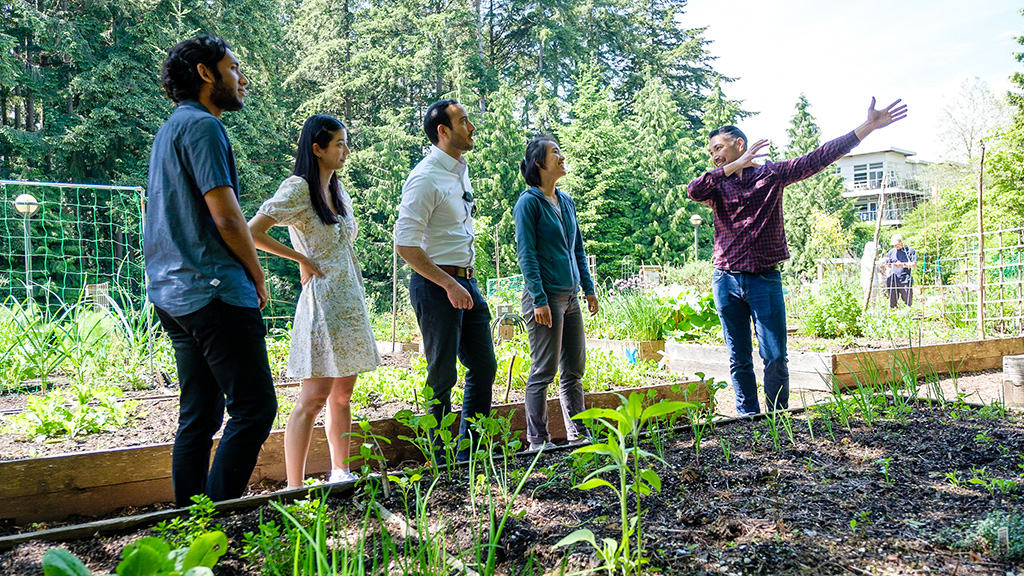The University of British Columbia’s Faculty of Forestry is launching nine new micro-certificates aimed at delivering in-demand skills and knowledge in a flexible manner to working professionals in forestry and construction.
The micro-credential system is designed to work with the schedules of older professionals with an eye to meeting the needs of industry, said Sheri Andrews-Key, director of micro-certificate programming, CVA program lead and lecturer with UBC.
“We’ve been quite successful with it. We created a good model that helps meet different people’s schedules and has flexibility built into it, but also we made sure that we’re meeting the needs and the different requirements for industry and practitioners,” Andrews-Key said.
The nine new certificates are: Tall Wood Structures, Fire Safety for Timber Buildings, Zero Carbon Building Solutions, Hybrid Timber Construction, Forest Health Management, Communication Strategies for Resource Practitioners, Strategic Management for Sustainability, Environmental Footprints of Organizations and Circular Bioeconomy Business Development.
The micro-certificate program was initially launched in 2021 with Andrews-Key at the helm with one certificate. In less than three years, the program will have grown to 13.
“It’s been quite an exciting journey. We’ve recognized that we really want to help build capacity out there and connect with practitioners, not just in forestry but across different sectors,” she said.
The micro-certificates are about upskilling working professionals and focusing more on work-facing knowledge and skill application instead of the theory-based lessons of an undergraduate degree.
To be accessible to its targeted demographic, the program needed to be flexible.
“There’s a good level of career people out there who want to upskill for different areas and need new skills but they have family obligations, full-time jobs, they have mortgages,” she said.
“So you need the program to be cost effective so that people can make sure that whatever they are doing is going to pay back, but you also need to have flexibility.”
The micro-certificates are entirely online and are also broken up into four classes, each taking a total of roughly two weeks to complete.
Andrews-Key said once enrolled, a student has two years to complete all four of their classes.
Flexibility isn’t just built into the program structure but something the administrators and teachers take upon themselves as well. Andrews-Key said the online nature of the program means she has professionals with various schedules participating from across the world.
“I’ve had chief foresters from different parts of the world, such as the Icelandic Forest Service in my program. They’ll say, ‘Sheri, I can’t meet this deadline, can I have an extension?’ We have that flexibility available because we know life happens.”
New to the faculty with this round of micro-certificates is a series of mass timber and construction-related courses. These were developed based on feedback from associations in the industry.
“This is an area that the wood science department has recognized over the last few years, that there needs to be more capacity,” she said.
The micro-credentials were launched with an eye on sustainability and mass timber construction is a natural extension of that goal, she said.
“There’s a lot of opportunity, especially when we’re looking at the carbon and sustainability side of things, for us to ask ‘Where do things need to go? Where do we need to transition? What is our role within that?’”
Andrews-Key is very familiar with the use of timber for construction. She grew up in rural Ontario where her father worked as a horse logger and said the modern push towards mass timber construction is a source of optimism in the face of growing climate challenges.
“I’ve been working in forestry for more than 25 years and it gives me a real hope, actually, for innovative ideas that people are really starting to grab on to and the amount of interest and uptake in these types of programs.”
While there are still challenges facing people like Andrews-Key who have made sustainability and tackling climate change a cornerstone of their career, “incremental change is valuable and important.”
“There’s always going to be challenges. If we make ourselves aware of them, then we can look for strategies and solutions to work around them and make things better. That’s me. I focus on what we can do and I know we aren’t going to change everything overnight.”
The nine new micro-certificates are going to be launching this fall.
Information on the program can be found at https://forestry.ubc.ca/future-students/certificates/.







Recent Comments
comments for this post are closed